What are black spots on cashews? Does it affect the quality of cashews and the health of the consumer?
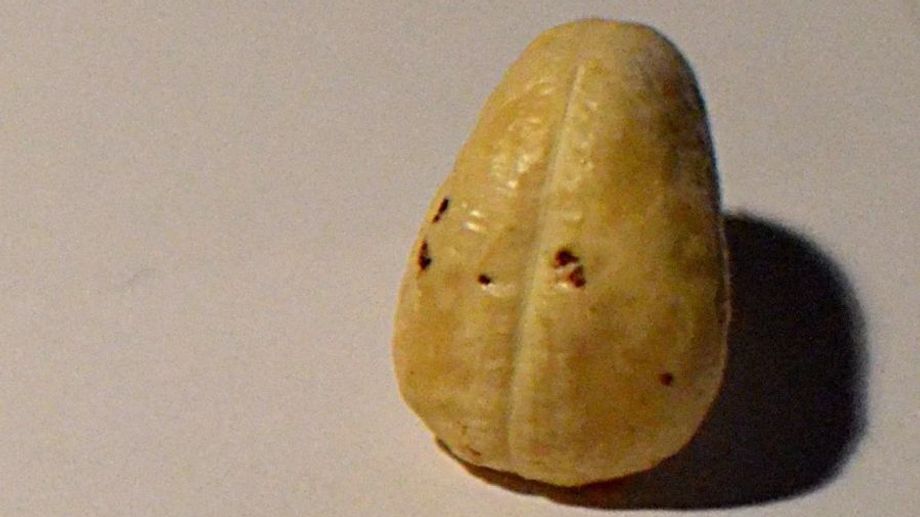
Mục lục
Do you know anything about black spots on cashews? What causes black spots on cashews, and how is the quality of cashews affected? Are black spots harmful to people who eat cashews? If you accidentally eat cashews with black spots, how should you handle them to ensure health and safety? This is probably the question of many people who are interested in cashews. Let's find the answers to the above questions!
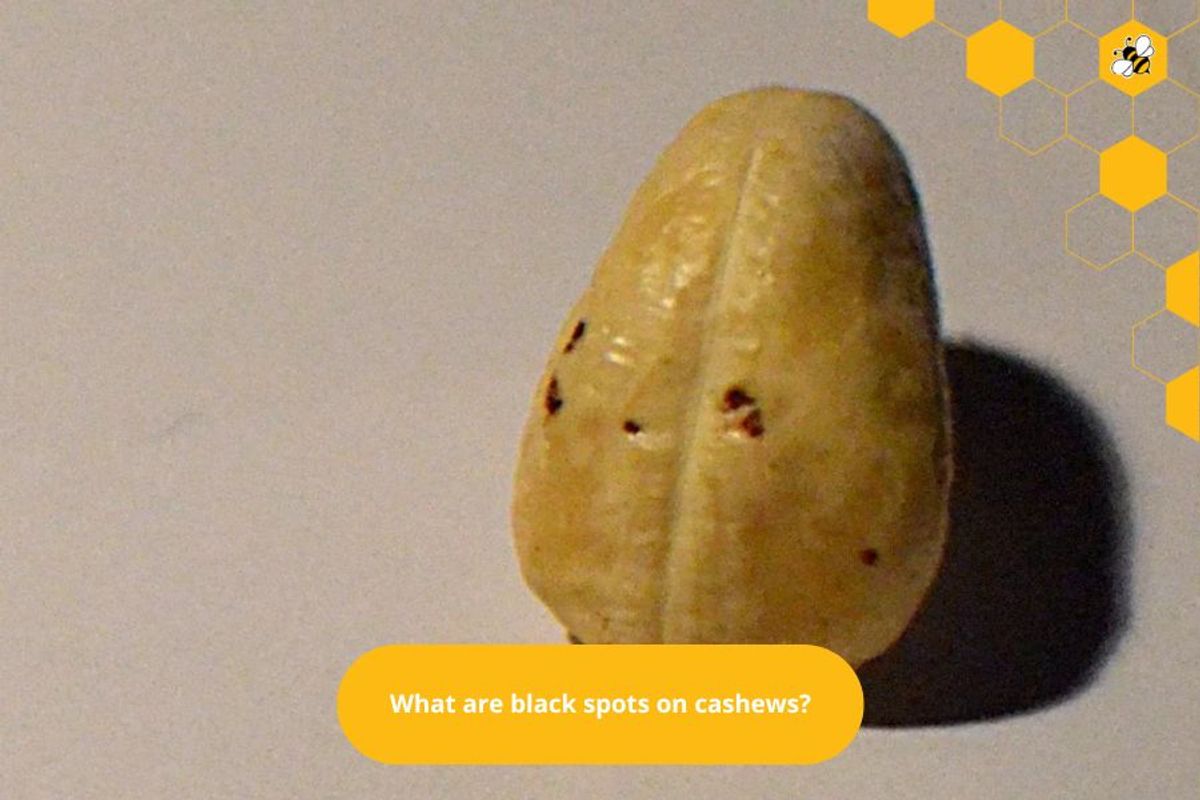
What are black spots on cashews?
Black spots on cashews are often a sign of damaged nuts. This usually happens when pests attack, causing damage to the nuts. When cashews are infected with pests, black spots will appear on the body of the cashew. Therefore, when you see small black spots on the cashew nuts you buy, pay attention to the fact that the cashew nuts may be of poor quality.
Black spots on cashews are often a sign of spoilage caused by bacteria and fungi. This can affect food quality and safety. Here are some of the harmful effects of black-spotted cashews:
Reduced storage capacity: Cashews with black spots are likely to spoil quickly during storage. Bacteria and fungi can grow and damage the nuts' structure, making them unsuitable for long-term storage.
Reduced commercial value: Cashews with black spots are not popular and can be sold at a lower price. Consumers often avoid buying cashews that appear damaged or unsightly.
If you find black spots on cashews, consider discarding them to ensure food safety and quality.
Black spots on cashews are often a sign of spoilage caused by bacteria and fungi. This can affect food quality and safety. Here are some of the harmful effects of black-spotted cashews:
Reduced storage capacity: Cashews with black spots are likely to spoil quickly during storage. Bacteria and fungi can grow and damage the nuts' structure, making them unsuitable for long-term storage.
Reduced commercial value: Cashews with black spots are not popular and can be sold at a lower price. Consumers often avoid buying cashews that appear damaged or unsightly.
If you find black spots on cashews, consider discarding them to ensure food safety and quality.
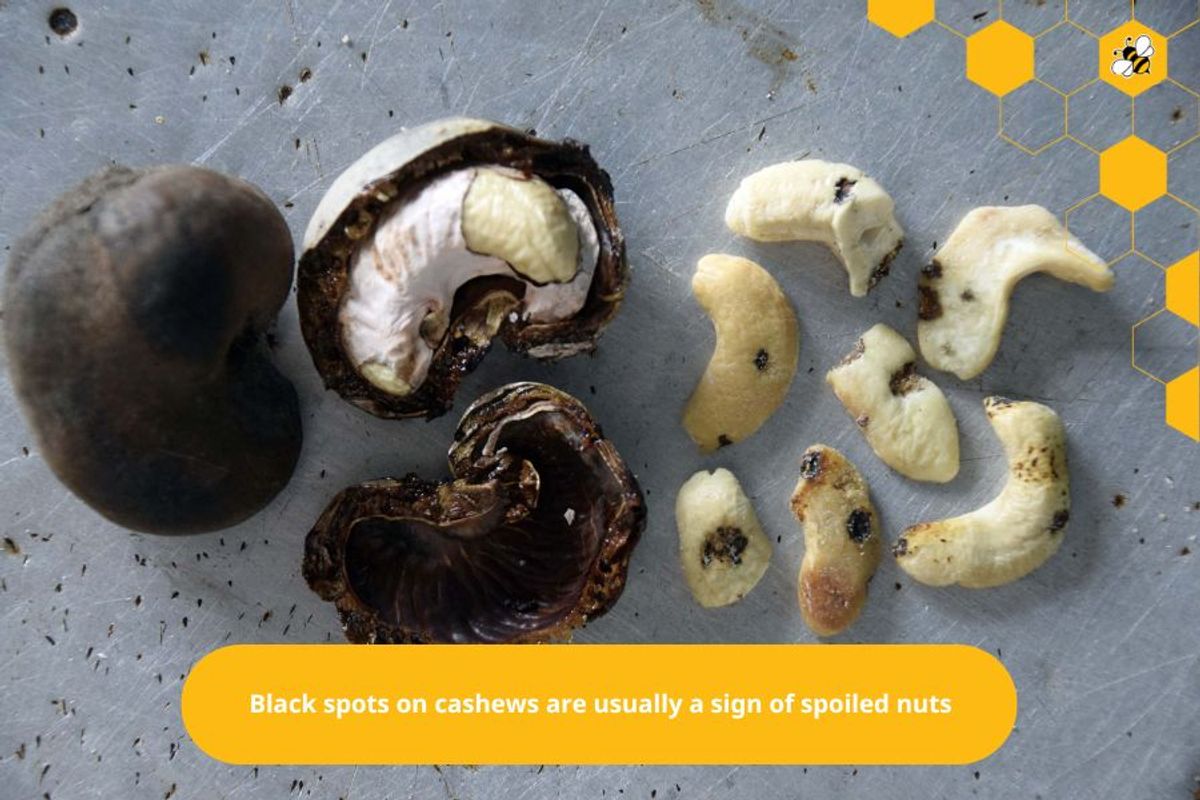
Causes of black spots on cashews
Black spots on cashews can come from many causes. Here are some causes:
Cashew mosquito bugs
Morphological characteristics: There are two types of mosquito bugs: green and red. The green type is the most harmful to cashew trees, while the red type is less harmful and is not very common on cashew trees. Mosquito bug eggs are small and have 2 silk threads, creamy white in color.
Symptoms and effects: Mosquito bugs often bite the soft tissues of the tree, causing gray or black bite marks. Fungi can penetrate the bite marks, making the condition worse. Mosquito bugs are active in the early morning and cool afternoon, causing damage from October to May.
Prevention and treatment measures: Clean the garden, fertilize in a balanced way, create conditions for natural enemies to grow, and spray pesticides if necessary.
Symptoms and effects: Mosquito bugs often bite the soft tissues of the tree, causing gray or black bite marks. Fungi can penetrate the bite marks, making the condition worse. Mosquito bugs are active in the early morning and cool afternoon, causing damage from October to May.
Prevention and treatment measures: Clean the garden, fertilize in a balanced way, create conditions for natural enemies to grow, and spray pesticides if necessary.
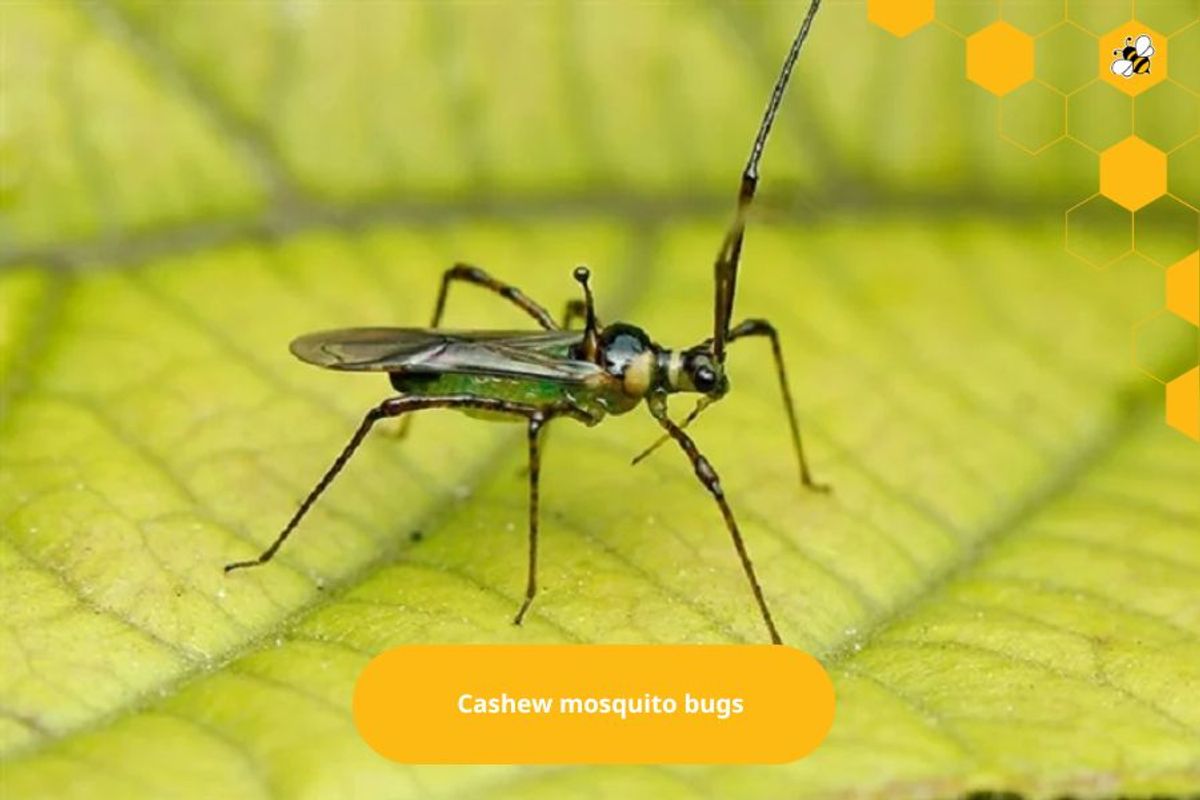
Fungi
Mycosphaerella pinodes and Phoma medicaginis var. pinodella are the fungi that cause black spot disease in cashew nuts. The fungus can survive in the nuts, soil, or pruned tree debris. The fungus is spread by wind and causes disease in the new crop.
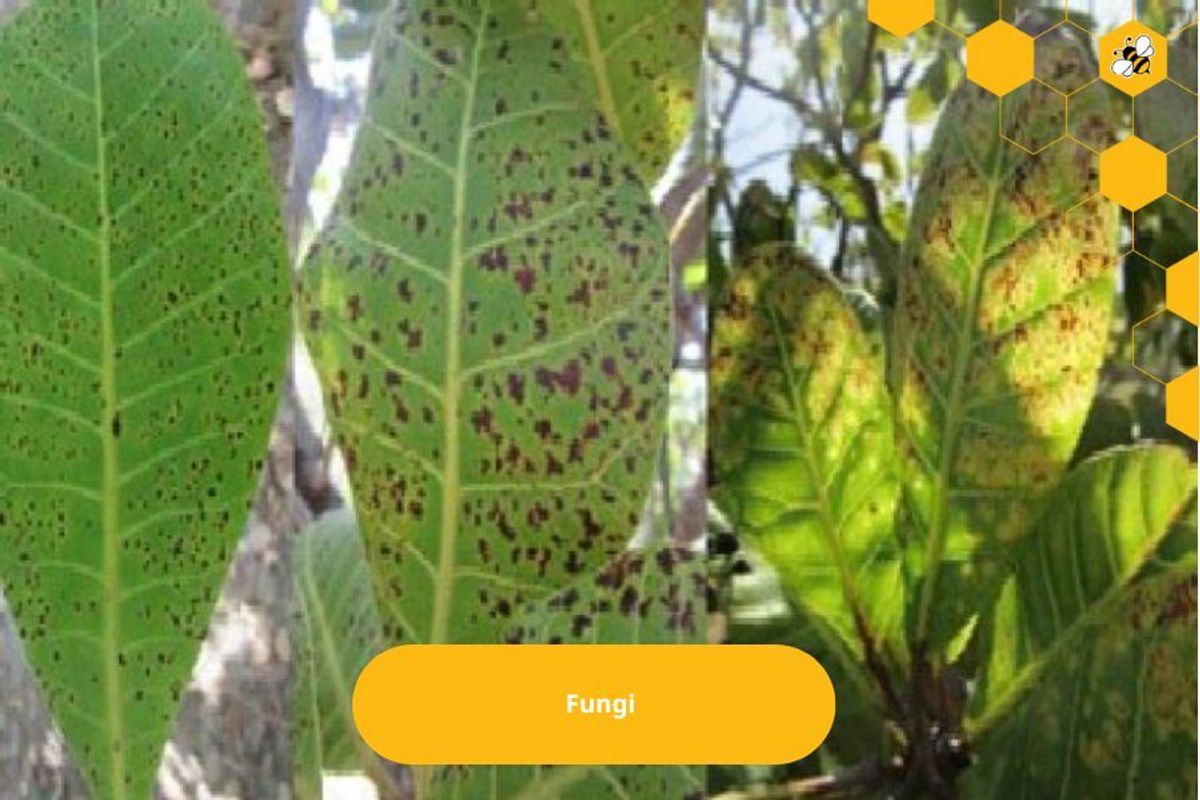
Spots and Shrinkage
Spotted, shrunken, and worm-infested cashews are typically dark brown, dark green, mottled, and discolored. These may be due to pests or defects.
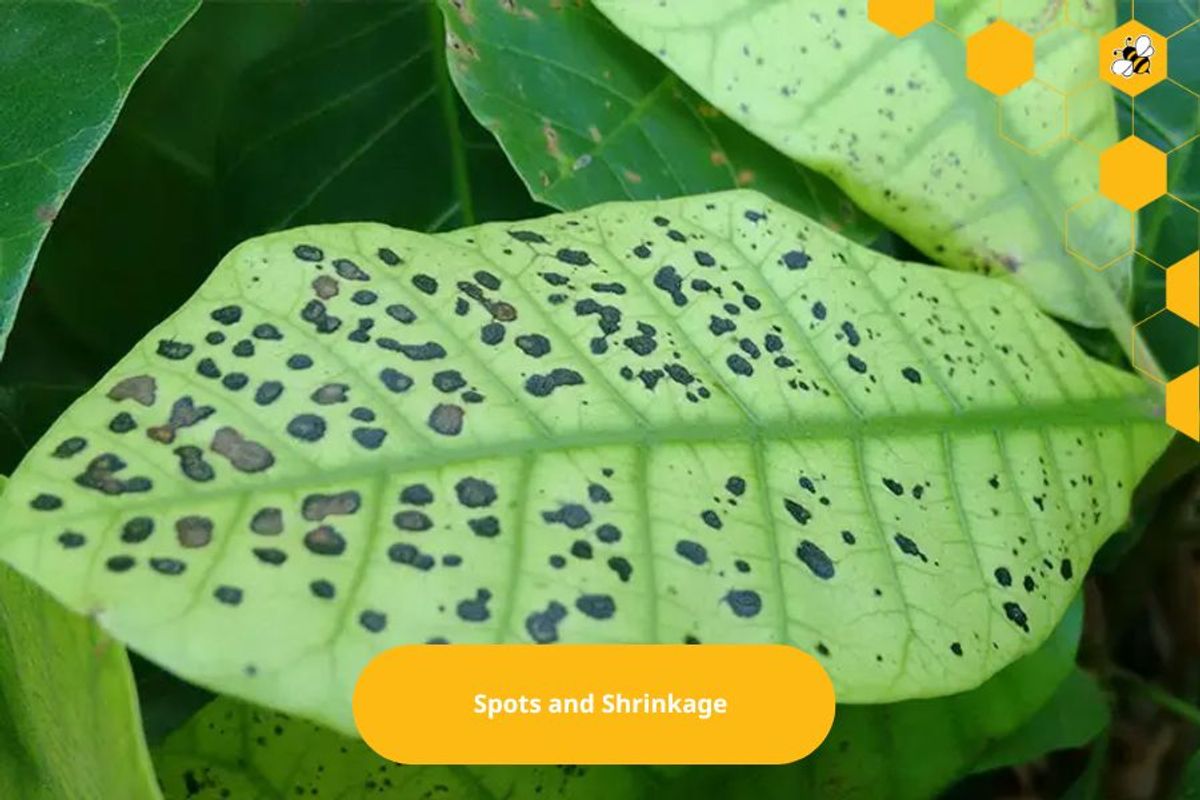
Black spot disease
On cashew trees, black spot disease causes lesions on the stem, leaves, fruit pods, and seeds. Small, irregularly shaped dark brown spots develop scattered on the leaf surface.
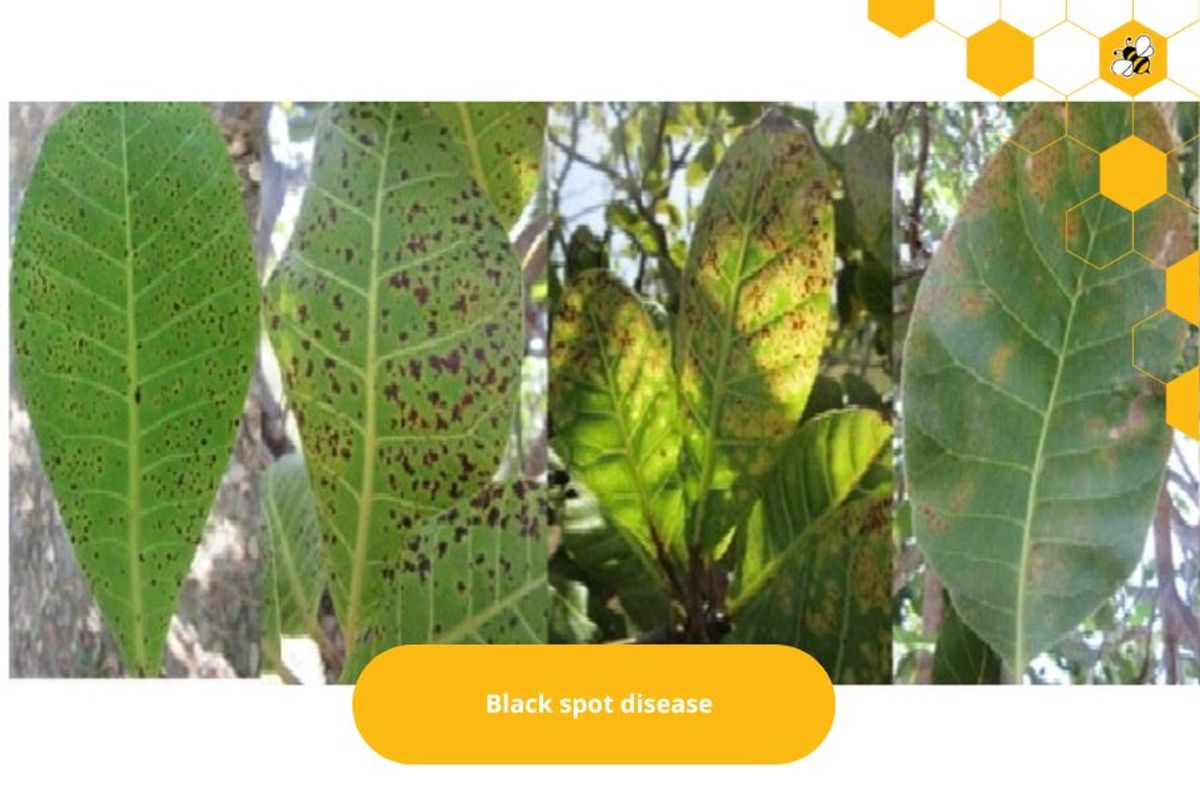
To reduce black spots on cashews, you can take the following measures:
Clean the garden: To limit the attack of stink bugs, regularly clean the garden and avoid making it a place for them to live.
Balanced fertilization: Use balanced N.P.K fertilizer, and increase potassium fertilizer when the cashew tree has new shoots, flower buds, and young fruit.
Create conditions for natural enemies: Encourage the development of natural enemies.
Spraying: If the garden is damaged by stink bugs, you can use a spiral spray.
Balanced fertilization: Use balanced N.P.K fertilizer, and increase potassium fertilizer when the cashew tree has new shoots, flower buds, and young fruit.
Create conditions for natural enemies: Encourage the development of natural enemies.
Spraying: If the garden is damaged by stink bugs, you can use a spiral spray.
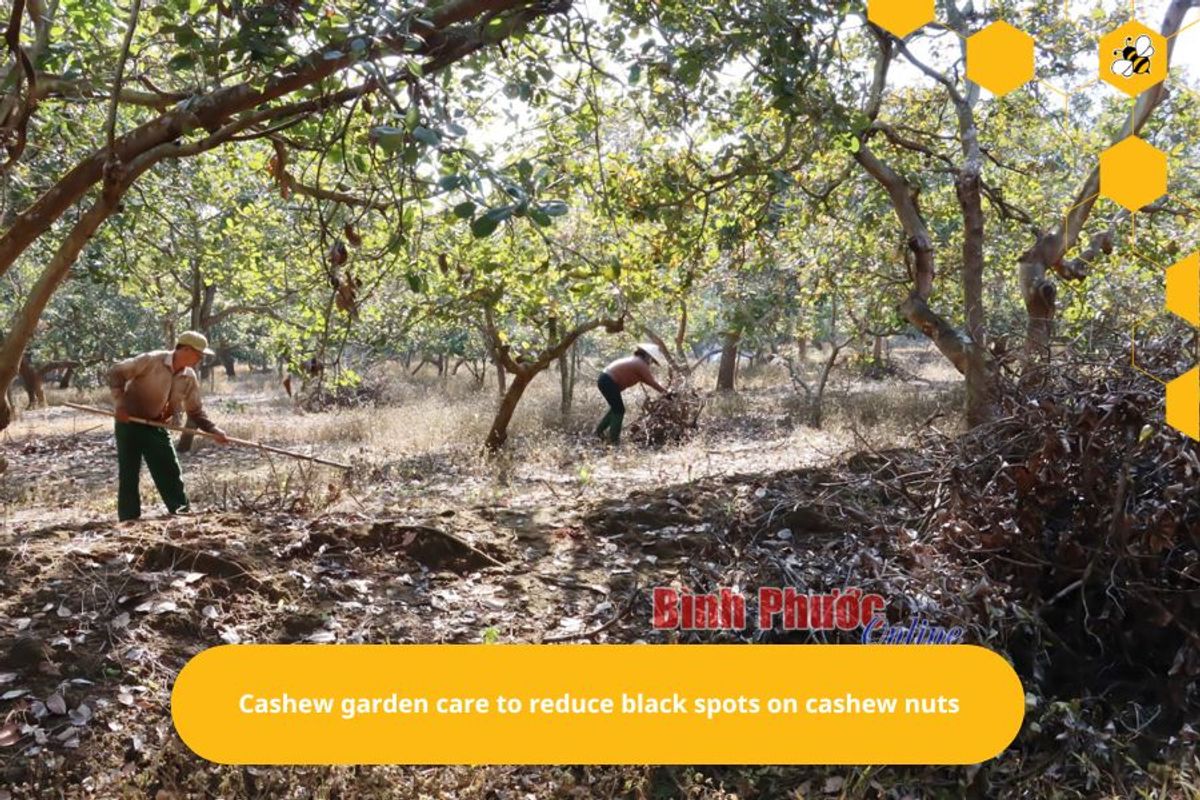
Remember, determining the exact cause of black spots on cashews requires detailed analysis and field testing. If you are experiencing this condition, I recommend consulting an agricultural expert for the best solution for your cashew crop.
Impact of black spots on cashews quality
Black spots on cashews can affect the quality and value of the nuts. Here are some aspects of the impact of black spots:
Aesthetic impact: Black spots make cashews look unattractive. When cashews are black-spotted, consumers tend to avoid buying nuts that appear to be uneven in color.
Impact on flavor: Black spots can affect the flavor of cashews. Some black spots can be a sign of spoilage or disease. Cashews infected with the disease often have an unpleasant taste and can be harmful to health.
Impact on commercial value: Cashews with black spots are often not highly valued in the market. Therefore, if a batch of cashew nuts has many black spots, its commercial value may decrease.
Aesthetic impact: Black spots make cashews look unattractive. When cashews are black-spotted, consumers tend to avoid buying nuts that appear to be uneven in color.
Impact on flavor: Black spots can affect the flavor of cashews. Some black spots can be a sign of spoilage or disease. Cashews infected with the disease often have an unpleasant taste and can be harmful to health.
Impact on commercial value: Cashews with black spots are often not highly valued in the market. Therefore, if a batch of cashew nuts has many black spots, its commercial value may decrease.
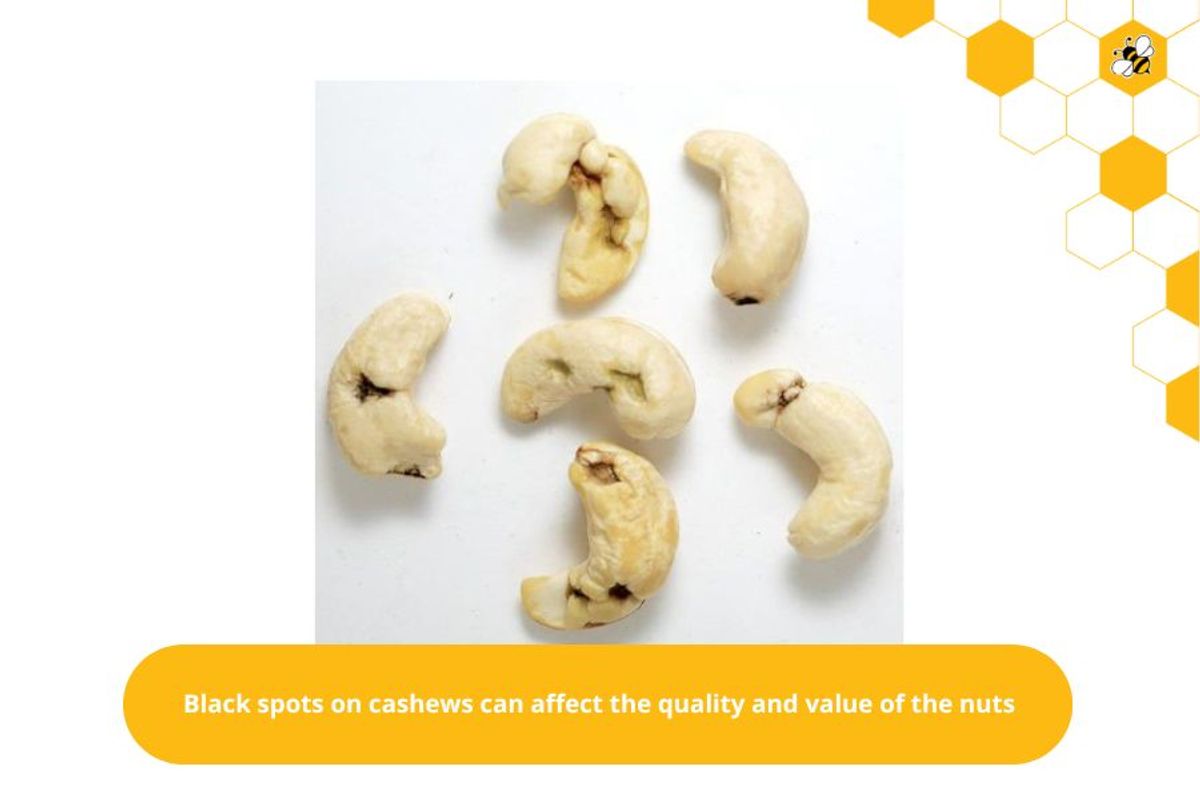
To maintain the quality of cashew nuts, growers need to pay attention to pest control, disease control, and environmental conditions. If you have problems with black spots on cashew nuts, consult an agricultural expert to find a suitable solution.
Effects of black spots on the health of consumers
Black spots on cashew nuts do not directly affect the health of consumers. However, controlling the quality of cashew nuts is important to ensure food safety and reduce the risk of exposure to harmful agents.
Here are some aspects related to health and cashew nuts:
Contamination: If cashew nuts are contaminated with bacteria or mold, black spots can be a sign of spoilage. In this case, eating cashew nuts can be harmful to health.
Food quality: Cashew nuts with black spots can be a sign of low quality or unhygienic conditions. Consumers should choose cashew nuts that are evenly colored and do not show signs of spoilage.
Allergy risk: Some people may be allergic to cashews. Black spots do not cause allergies, but if you have a history of cashew allergies, check carefully before consuming. In short, black spots on cashews are not a major health problem for the eater. However, choosing quality cashews and ensuring hygiene is important to avoid the risk of infection and allergies.
Here are some aspects related to health and cashew nuts:
Contamination: If cashew nuts are contaminated with bacteria or mold, black spots can be a sign of spoilage. In this case, eating cashew nuts can be harmful to health.
Food quality: Cashew nuts with black spots can be a sign of low quality or unhygienic conditions. Consumers should choose cashew nuts that are evenly colored and do not show signs of spoilage.
Allergy risk: Some people may be allergic to cashews. Black spots do not cause allergies, but if you have a history of cashew allergies, check carefully before consuming. In short, black spots on cashews are not a major health problem for the eater. However, choosing quality cashews and ensuring hygiene is important to avoid the risk of infection and allergies.
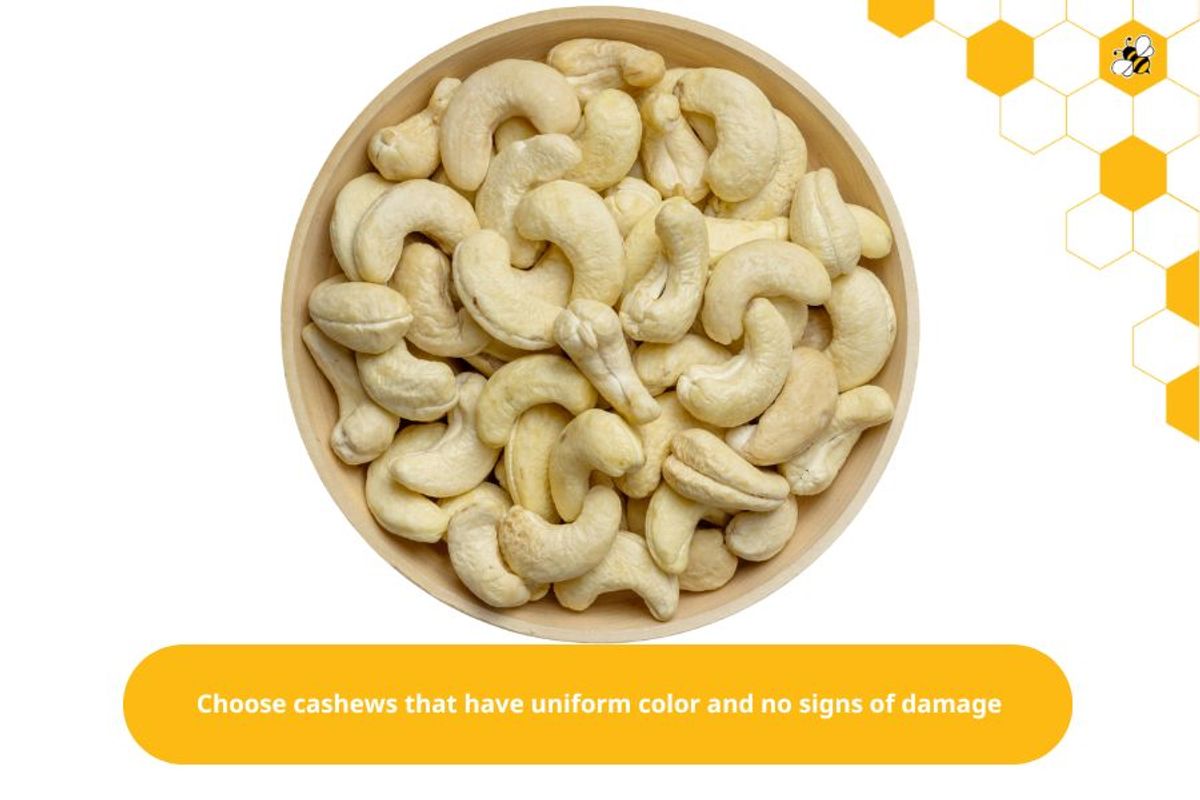
How to handle when eating black-spotted cashews
When you eat black-spotted cashews, there are several ways to handle them depending on your allergy and symptoms:
Eliminate the cashews: If you feel allergic after eating cashews, vomit to remove the eaten cashews from your body. Then, lie down and rest to reduce the symptoms.
Avoid scratching the skin: If you have skin symptoms such as itching, avoid scratching to avoid damaging the skin and risking infection. You can use a skin cream containing gotu kola extract to reduce itching and nourish the skin.
Drink cresol: If you experience digestive symptoms such as diarrhea or vomiting, drink cresol to replenish electrolytes and water.
Anaphylaxis: If you have symptoms of anaphylaxis (such as difficulty breathing, rapid heartbeat, and low blood pressure), seek medical help immediately.
Remember, if you suspect you have a cashew allergy, consult your doctor for specific advice and to determine the appropriate treatment.
Eliminate the cashews: If you feel allergic after eating cashews, vomit to remove the eaten cashews from your body. Then, lie down and rest to reduce the symptoms.
Avoid scratching the skin: If you have skin symptoms such as itching, avoid scratching to avoid damaging the skin and risking infection. You can use a skin cream containing gotu kola extract to reduce itching and nourish the skin.
Drink cresol: If you experience digestive symptoms such as diarrhea or vomiting, drink cresol to replenish electrolytes and water.
Anaphylaxis: If you have symptoms of anaphylaxis (such as difficulty breathing, rapid heartbeat, and low blood pressure), seek medical help immediately.
Remember, if you suspect you have a cashew allergy, consult your doctor for specific advice and to determine the appropriate treatment.
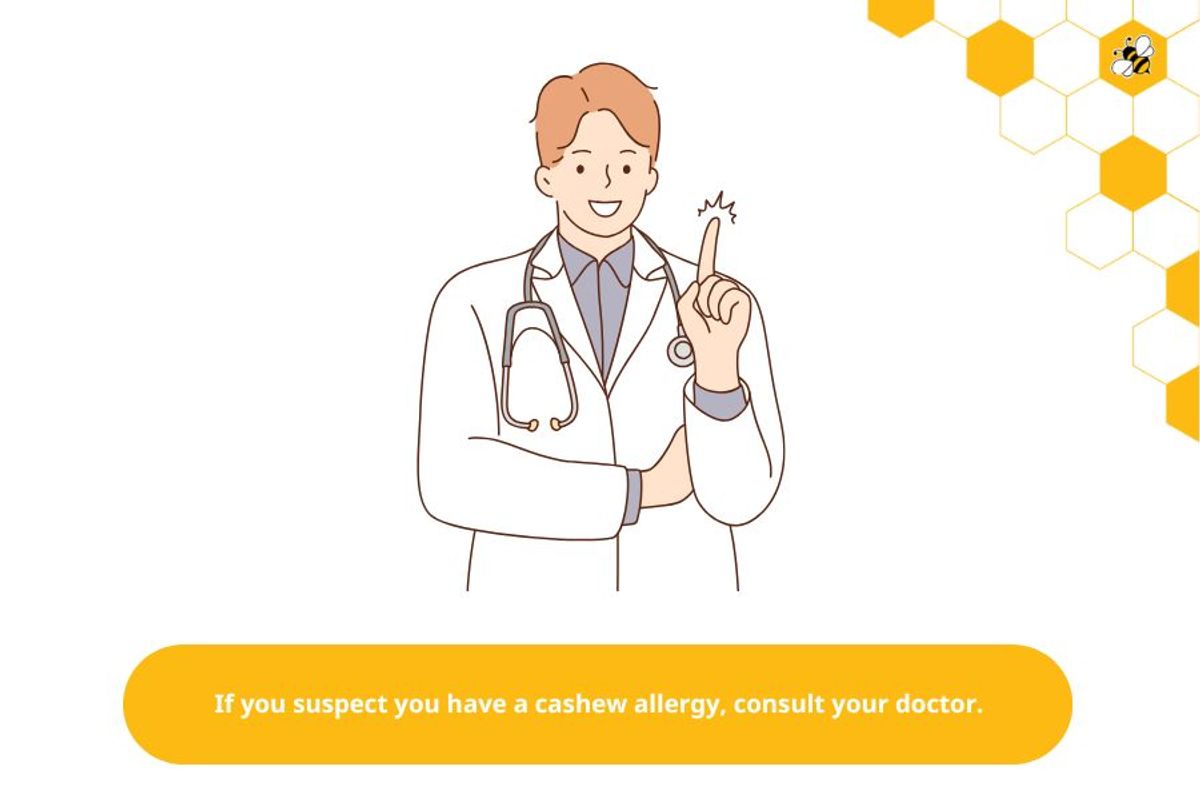
Summary
Black spot disease on cashew nuts is an important problem in the agricultural and cashew processing industry. It needs to be treated early and thoroughly to avoid leaving black spots on cashew nuts, reducing the quality of the cashew nuts, as well as harming the health of the consumer. Please learn carefully to be able to understand how to distinguish spotted cashew nuts and how to safely handle cashew nuts with black spots.